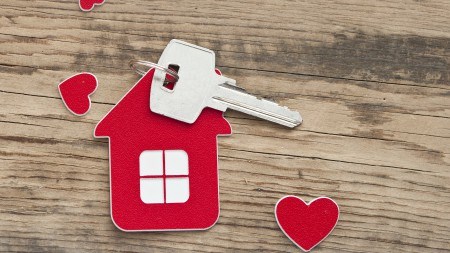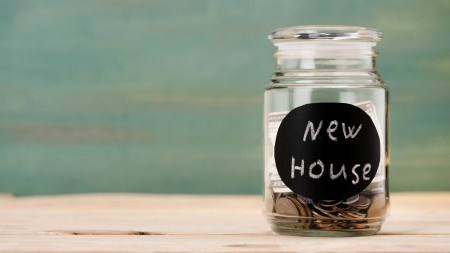With slow property price growth and high living costs to contend with, homeowners are staying in the same home for longer. Here’s how to buy for the long-term.
When buying your first home, should you be looking for a tiny townhouse that is just big enough for one (or maybe two at a pinch) and suits a lock-up-and-go lifestyle – or maybe considering a bigger apartment or house so you won’t have to move when your family starts to grow, or you slow down and develop an interest in gardening?
“Our statistics* show that the average age of first-time buyers is now around 34,” says Rudi Botha, CEO of SA’s biggest bond originator BetterBond, “and that would suggest that many, if not most, are planning a longer-term commitment to a home with enough bedroom and garden space for children, as well as enough living space for more at-home entertaining.
“And this seems to be borne out by the latest report from property data company Lightstone, which shows that the average period of home ownership for first-time buyers has stretched from seven years in the early 2000s to 12 years currently.”
There are several reasons for this change, he says, the first being the slower rate of growth in property values since the 2008/ 09 financial crash, which has made it more difficult to sell homes at a large profit within a short period.
“In addition, selling and buying again can be stressful and expensive. As well as the transfer duty, legal fees and bond registration costs for the new home, one must account for the costs of moving, reconnecting utilities and all the time spent on organising the move. Other hidden costs can include new school uniforms, more insurance and extra security.”
What is more, Botha notes, it’s hard not to become emotionally attached to your first home and reluctant to sell it, especially if it’s the only home your children have known and the one where you have built up strong connections to a community.
But if you want a home that is worth hanging on to, you need to buy right in the first place, which can be tricky if you are young and don’t yet have a family-size budget. “The best place to start is with the biggest deposit you can manage to save. This will not only improve your chances of being approved for a bond but could also mean that you qualify for a lower interest rate, especially if you apply through a reputable bond originator like BetterBond that will approach South Africa’s major banks to get you the best home loan deal.
“And a lower interest rate means more affordable monthly repayments plus big savings on the total cost of your home over the lifetime of the bond. On a R1m bond taken over 20 years, for example, an interest rate that is just 0,5% lower than the current prime rate of 10,25% will save you almost R80 000.”
The features that first-time buyers should look for:
Great basics. If you’ve decided to buy a house rather than a bigger apartment, make sure you choose one that is structurally sound, and that the roof, plumbing and electrical systems are also in good condition. This will mean big savings on home maintenance, especially in the critical first few years of ownership. You should also be prepared to forego things like a pool or even a lock-up garage at this stage, in exchange for features you need more right now, like good security measures.
Room to grow. The house may be small now but if it is in a good area and there is yard space to add on extra bedrooms and bathrooms as you need them, this may be your ideal property. Well-proportioned rooms and generous ceiling heights are also a plus if you are anticipating making alterations at a later stage.
Energy efficiency. A home that makes use of solar and other renewable energy sources to provide electrical power, heat water and cook your food is not only good for the environment but also helps to make home ownership more affordable by lowering your monthly running costs. You should also look out for homes with water-saving installations like rainwater tanks and low-flow taps, showers and toilets.
Good schools. Before committing to any property, make sure there are good - and affordable - primary and high schools in the area, as well as shops for your day-to-day needs, medical facilities, places of worship and public transport. In addition, you should try to live as close as possible to work.
Manageable gardens. If lawn-mowing and tree-trimming are not your idea of a fun weekend, and you don’t have the budget for a garden service, you should steer clear of very large properties. A smaller yard will usually also cost less to secure and attract lower city council rates and taxes.
Fair levies. Buying a home in a sectional title complex or an estate can have many advantages, such as better security and access to shared amenities like a pool or a clubhouse, but you will be liable to pay a monthly levy in addition to your home loan repayment. You need to find out how much this is and what it covers before you sign any sale agreement.




